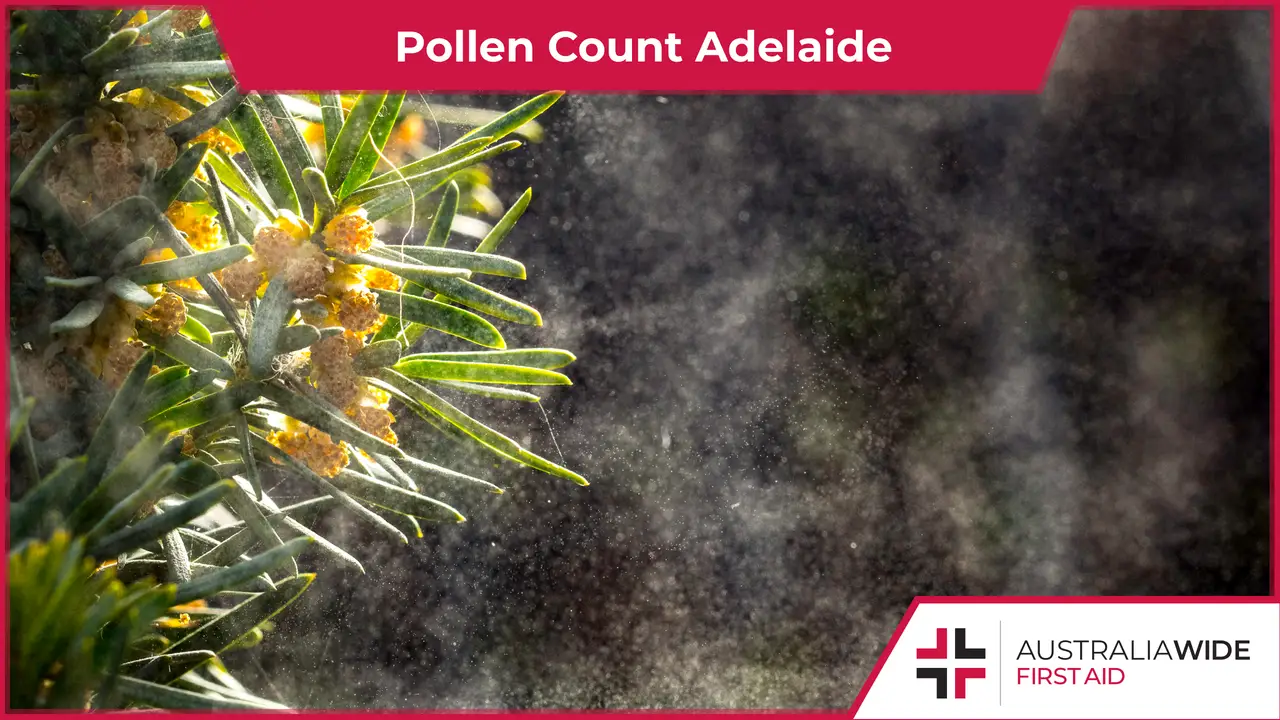Why Pollen Count Adelaide is Important


Pollen is a powdery substance produced by flowering plants, angiosperms, when they reproduce.
Pollen can trigger symptoms of asthma, a chronic condition in which the small tubes that carry air to and from the lungs become blocked and make it difficult to breathe.
According to Asthma Australia, one in five people residing in Adelaide, the 'Garden City of Australia', live with hay fever and/or asthma.
For this reason, Asthma Australia helps coordinate the Adelaide Pollen Count, a daily report of grass pollen levels from the past 24 hours.
In this article, we will look at why pollen counting is vital to the wellbeing of asthma sufferers in Adelaide.
And if you live in Adelaide and would like to learn more about identifying and managing the symptoms of asthma, check out the following courses near you:

As we mentioned earlier, pollen triggers symptoms of asthma.
Asthma is a chronic condition in which the airways become narrow and make it difficult to breathe.
Severe asthma attacks are generally characterised by shortness of breath or wheezing and can be life-threatening without prompt treatment.
There are 3 main factors that cause the airways to narrow:
The exact cause of asthma is unknown, though it is thought to encompass a combination of environmental and genetic factors.
Rather, various irritants that commonly trigger allergies (allergens) can trigger symptoms of asthma. Pollen is one such trigger - other triggers can include:
The tell-tale signs of a pollen allergy can include a runny nose, watery eyes, and itchy skin.
Pollen counts, including the Adelaide Pollen Count, measure the number of pollen grains in a cubic metre of air.
They are used by pollen indexes, such as the Brisbane Pollen Index, to forecast the likelihood of allergic reactions among susceptible people.
This information can help asthma sufferers take the necessary precautions to reduce their exposure to pollen and the risk of an asthma attack. These precautions can include:
Asthma is a chronic condition in which the airways narrow and make breathing difficult.
Though the exact cause of asthma is unknown, symptoms of asthma can be triggered by common allergens, including pollen.
Pollen counts, such as the Adelaide Pollen Count, and pollen indexes provide day to day forecasts on the level of pollen in the air. As such, they are vital in helping asthma sufferers reduce their exposure to allergens and the risk of an asthma attack.
If you would like to learn even more about treating asthma symptoms in Adelaide, book a first aid course with us today:

October 2, 2013
In an asthma or anaphylaxis emergency you should know the symptoms, remove triggers, and know how to respond. Read on to understand these important aspects in the context of such an emergency.

May 7, 2024
Asthma, a chronic respiratory condition affecting millions worldwide, is often shrouded in myths and misconceptions. Despite how common it is, there is a distinct lack of common knowledge. This is leading to potential mismanagement and unnecessary anxiety for those living with asthma.

February 19, 2024
For many Australians, our city and outdoor lifestyles come with a hidden challenge – dust allergies. Dust mites, pollen, and other airborne particles can trigger allergic reactions, affecting a significant portion of the population.